The earliest references to the ferry can be found in the state papers of 1308, when the waterman who ran it, William de Wicton, sold his business and house to William Atte Halle, for £10. In 1320 the ferry was sold again for 100 silver marks. There is no further mention of the ferry during the years that Woolwich rose to prominence as a royal dockyard under Henry VIII and Elizabeth I.
Later, as London expanded, the movement of troops and supplies became a problem. In 1810 the army established its own ferry that ran from Woolwich Arsenal to Duvals Wharf.
In 1811 an Act of Parliament was passed to establish a ferry across the Thames from Woolwich at the Old Ballast or Sand Wharf, opposite Chapel Street where the dockyard then terminated.
The ferry became known as the western ferry and was run by a company that called itself The Woolwich Ferry Company. Shareholders included the Lady of the Manor, Dame Jane Wilson, her son Sir John Thomas Maryon Wilson, John Long and John Stride.
The western ferry continued to operate until 1844, when the company was dissolved after a history of inept management.
The free Woolwich ferry was established in the late 1880s. In 1880 a public meeting was held in Woolwich to see whether the town could afford to set up its own steam ferry. The board featured 60 local residents. The cost of building the boats and landing piers was too great and the Metropolitan Board of Works was approached. This board was the forerunner to the London County Council.
The people of Woolwich pointed out that, through their rates, they had helped pay for toll bridges in west London that the board had recently purchased and opened to free public use. They insisted that they, too, should be able to cross the Thames free of charge.
In 1884, after conducting a survey, the Metropolitan Board of Works agreed to provide a free ferry.
In September 1887, Messrs Mowlem and company were awarded contracts to build approaches, bridges and pontoons.
The free ferry opened on 23rd March 1889. Initially there were two paddle steamers the Gordon and Duncan. They were capable of eight knots and were licensed to carry 1,000 passengers with room for 15 to 20 vehicles.
The 493grt Gordon (above) was built in 1889 by R. & H. Green at Blackwall. She was named after General Gordon of Khartoum (1833-1885) who was born in Woolwich and studied at the academy.
For the opening Woolwich was decorated with flags and bunting, and the streets were lined with volunteers from the local artillery. There was a huge procession, preceded by mounted police and followed by various local traders and associations with their emblems and bands. The official party of Lord Rosebery and other members of the newly formed London County Council, the local MP and other dignitaries travelled in open carriages. Lord Rosebery then declared to the people gathered, “The free ferry is open to the public.”
There was only one boat, the Gordon, in service that weekend and the crowds poured on to take advantage of the first free trips across the river.
That weekend alone, the Great Eastern Railway Company carried 25,000 people to its North Woolwich terminus, most of whom were intent on riding the ferry.
The 493grt Duncan (above) was built in 1889 by R. & H. Green at Blackwall. She was named after Colonel Francis Duncan (1836-1888) the author of a history on the Royal Artillery. Colonel Duncan was a soldier, and MP. He was director of the St. John Ambulance Brigade from 1877 until 1882. He died at Woolwich and is buried in Charlton.
The 554grt Hutton (above) joined the service in 1893. She was built by William Simons & Co. at Renfrew. She was named after Sir John Hutton DL, JP. Hutton was a Member of the London County Council from 1889 to 1901 and was its chairman from 1892 to 1895.
NEW FERRIES
The initial ferries were replaced between 1922 and 1930 by new paddle steamers, the Squires, Gordon, Will Crooks and John Benn.
The 609grt Squires (above) was built in 1922 by J. Samuel White and Co. at East Cowes, Isle of Wight. She was named after William James Squires (1850-1931), a Woolwich man, twice Mayor of Woolwich and for many years chairman of the Woolwich Equitable Building Society.

The 609gt Gordon (above) was built in 1923 also by J. Samuel White and Co. Like the previous Gordon she was named after General Gordon of Khartoum.
The 621grt Will Crooks (above) was built in 1930 by J. Samuel White and Co. She was named after William Crooks (1852-1921), Woolwich’s first Labour MP, who took his seat in the House of Commons in 1903. He served on the London County Council from 1892 until 1910 and was Mayor of Poplar in 1910.
The 621grt John Benn (above) was built in 1930 by J. Samuel White and Co. She was named after Sir John Benn (1850-1922), who was an ancestor of Tony Benn MP. A member of the London County Council from its creation in 1889 and its chairman from 1904 to 1905, John Benn was also MP for Devenport for six years.
PADDLE STEAMERS REPLACED
While the original paddle steamer ferries were suitable for horse-drawn traffic, the introduction of the motor car made it difficult for the ferries to cope because of the increase in weight that they had to carry.
The paddle steamers were designed for side loading, but this was a long and complicated process in the case of large motor vehicles. These vehicles were difficult to stow, fewer of them could be carried and there were longer delays at the terminals.
A decision was made to replace the paddle steamers with diesel-propelled boats that loaded from the end. A new causeway was also built on either side of the river with hinged traffic bridges to make loading and offloading easier.
The paddle steamers were replaced by motor ships in 1963. These were the John Burns, Ernest Bevan and James Newman of 739grt. They were built in 1963 by Caledon Shipbuilding & Engineering Co. at Dundee. They were capable of eight knots and were licensed to carry 500 passengers and 200 tons of vehicles.
The John Burns (above) was named after John Elliot Burns (1858-1943) who was an enthusiastic student of London’s history and its river. He called the Thames ‘liquid history’ and he would have appreciated being linked with it in this way. He represented Battersea on the London County Council from its creation in 1889 until 1907. He led the great dock strike of 1880 and was one of the first three independent Labour Members of Parliament to reach cabinet rank when he became President of the Local Government Board in 1905.
The Ernest Bevin (above) was named after Ernest Bevin who was the son of an agriculture labourer. He worked as a farm hand and truck driver before his keenness in trade union matters led to his becoming a trade union official in Bristol in 1911. In 1921 Bevin formed the Transport and General Workers Union from 32 separate unions. In 1945 he became Foreign Secretary and represented Woolwich in 1950 until ill health forced him to retire in 1951.
The James Newman (above) was named after James Newman who was a distinguished citizen of Woolwich and an important worker in the field of local government. A school teacher by profession, he was Mayor of Woolwich from 1923 until 1925 and again in 1952 to 1953. He served on many local and national organisations, including the metropolitan borough’s standing joint committee. He was the co-founder and vice president of the Woolwich Council of Social Service. In 1948 he was appointed an officer of the order of the British Empire in recognition of his services to local government.
CHANGE OF OPERATOR
In March 2008, the London Borough of Greenwich gave TfL notice that it would cease operating the service from 30th September 2008. On 12th September TfL announced that the outsourcing group Serco would take over the operation of the service from 1st October 2008. The contract ran initially until 31st March 2010. Control of the crossing passed from Serco to Briggs Marine, which was expanding into public passenger services, in December 2012. The company was awarded a £50 million seven-year contract, which began in April 2013.
LATEST FERRIES
In 2014, TfL began an upgrade of the ferry service, starting by refurbishing the piers and in 2016 ordering two new ferries to replace the existing vessels that were nearing the end of their working life. In early 2017, it was announced that the new ferries were to be built by Remontowa at Gdansk to a design by LMG Marin. The 1,750gt diesel-electric hybrid vessels have 210 metres of space for road vehicles over several lanes and dedicated cyclist accommodation. The vessels are licensed to carry 150 passengers segregated from road traffic. Continuing the tradition of naming the ferries after local people, it was announced in June 2017 that the two new vessels would be named after Dame Vera Lynn (above right), a singer and entertainer from nearby East Ham, and Ben Woollacott (opposite), the 19-year-old deckhand on the Woolwich Ferry who drowned after being dragged overboard in a mooring accident in 2011.
The two new ferries arrived in October 2018, entering service on 1st February 2019.
Following expiry of Briggs Marine’s contract in December 2020, the service is now run by London River Services.
The Editor is very grateful for the help received by the Royal Borough of Greenwich who provided most of the information contained in this article.

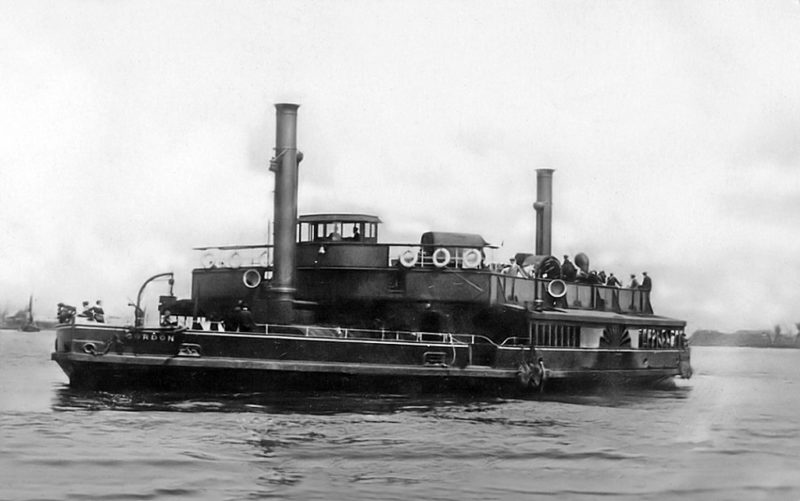
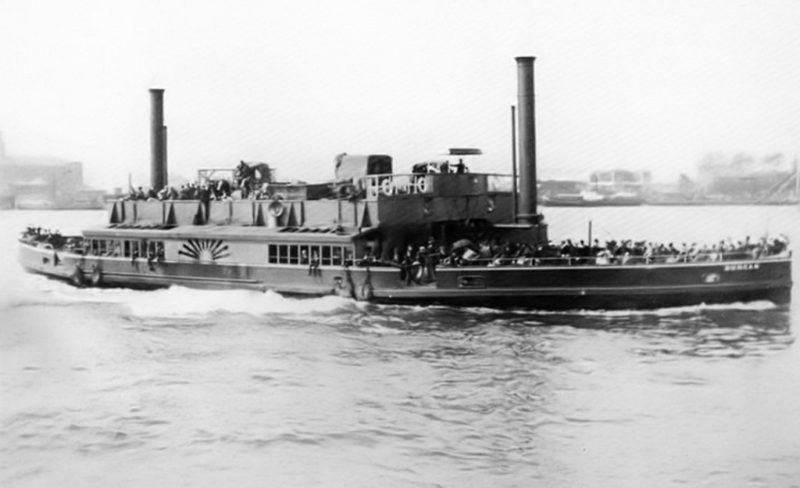
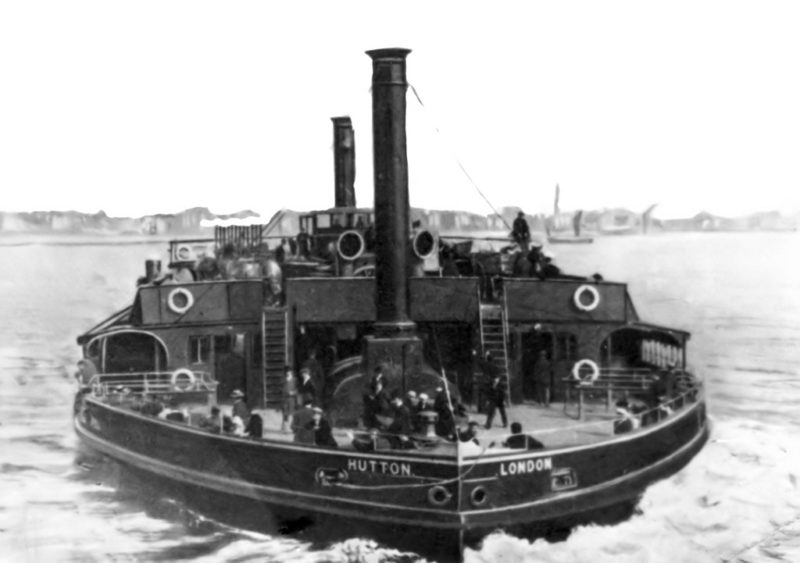
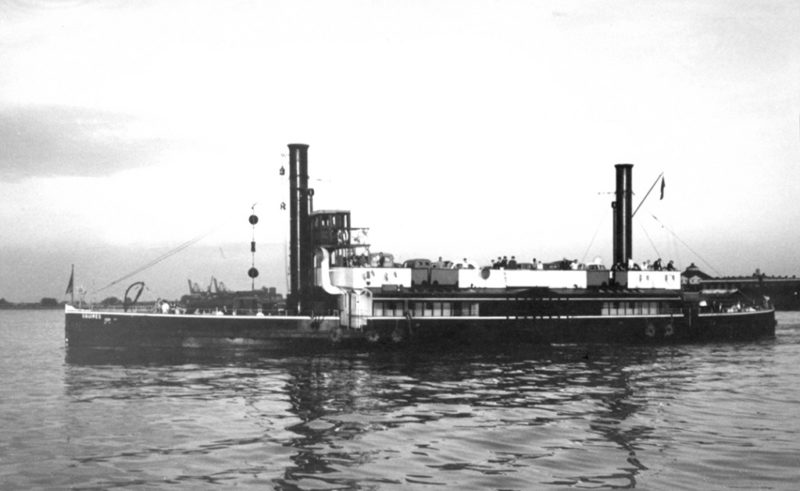
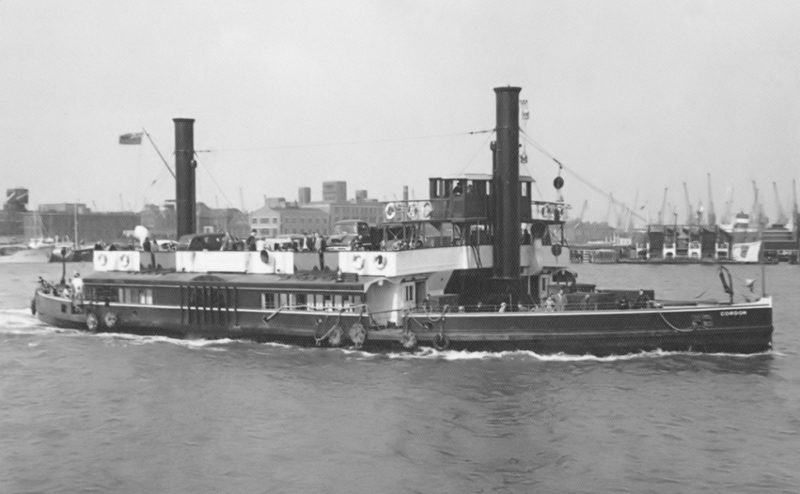
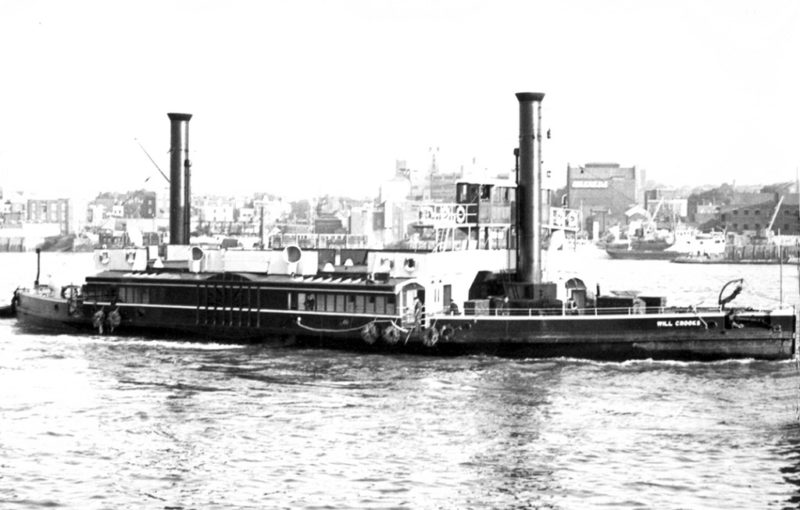
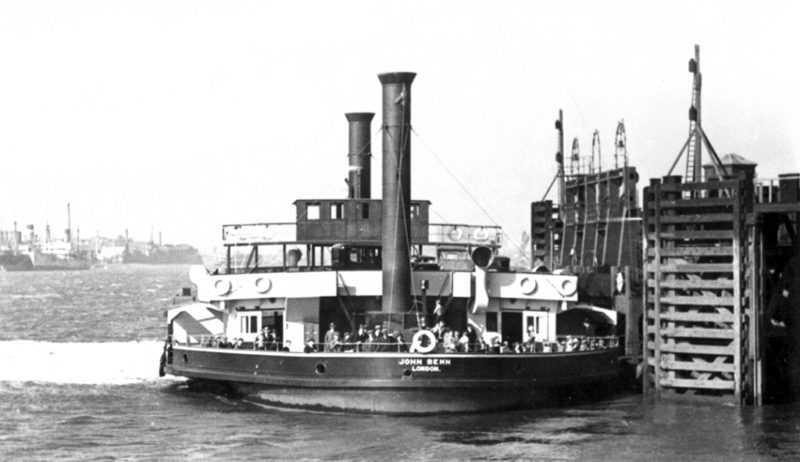
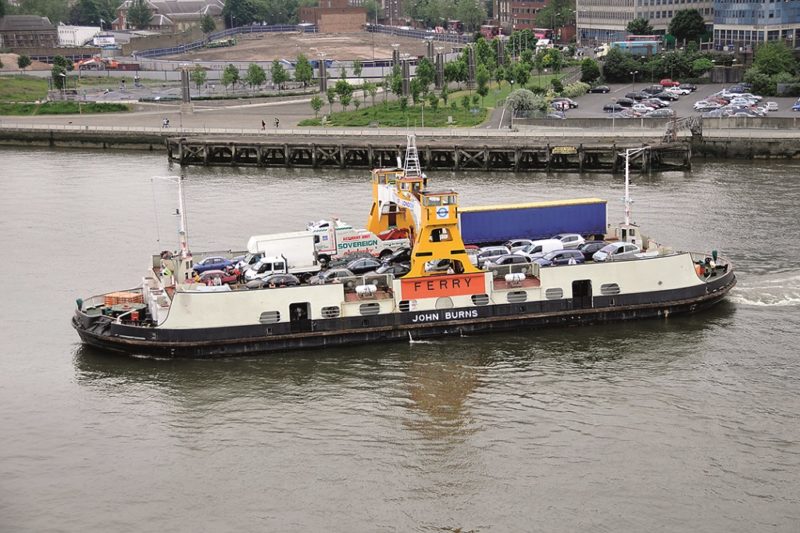
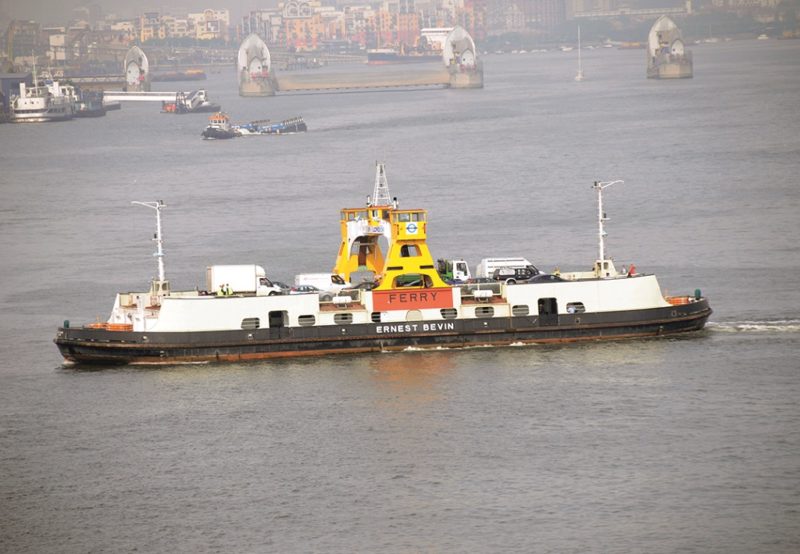
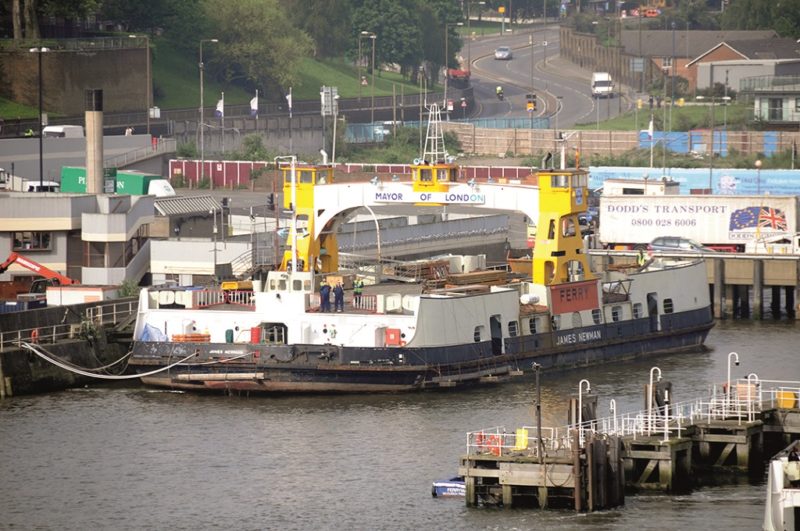
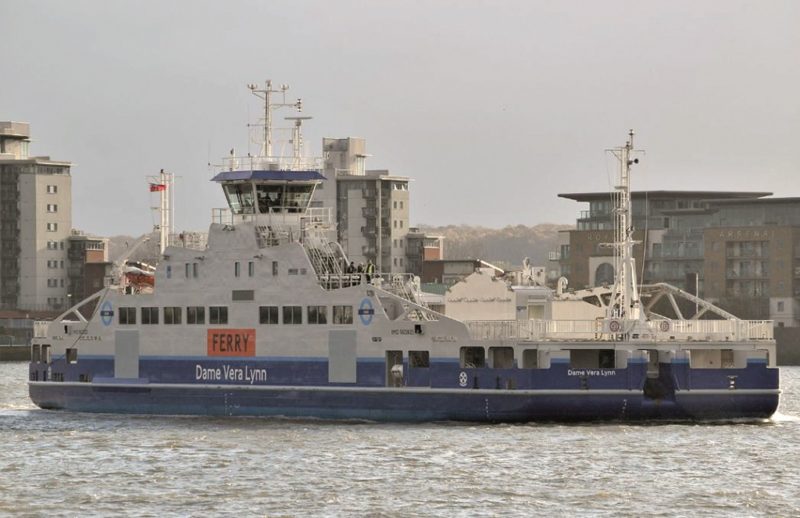
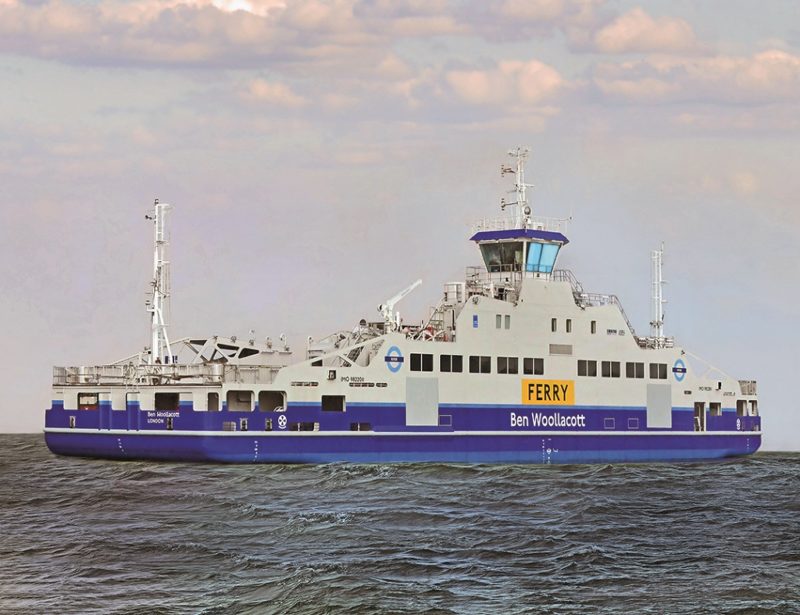
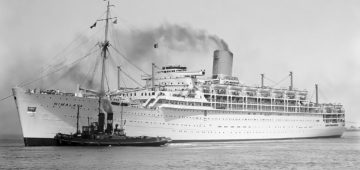


Comments
Sorry, comments are closed for this item